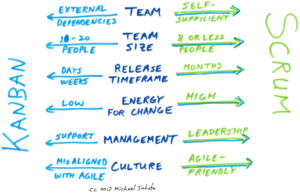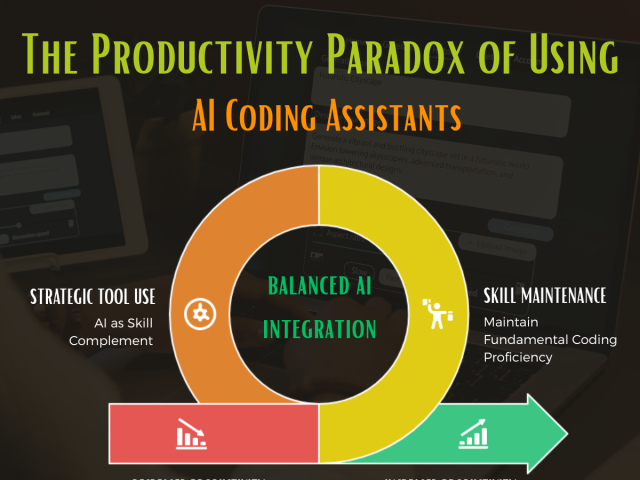In industries, there are many complex projects that are needed to be done and to execute these tasks smoothly there are major development and managing tools. Two of them are Scrum and Kanban.
Scrum:
Scrum is basically a tool used to break a project into small and manageable pieces that can be done by a cross functional team within the prescribed period of time. Scrum relies on three processes in order to plan, organize, administer and optimize a process. They are;
- The product owner who is responsible for initial planning, organizing and making communication with the company.
- The Scrum master whose responsibility is to look after the job during each sprint.
- The team members whose job is to execute the job prescribed for each such sprint.
Kanban:
Kanban is a tool used to organize work in order to gain efficiency. This process uses Just in Time manufacturing or JIT. Kanban was developed in Toyota lab in order to improve manufacturing by an industrial engineer. Kanban limits the work on the basis of any one condition.
Similarities between Scrum and Kanban:
There are many basic similarities in Kanban and Scrum as they both were designed to improve efficiency and to solve complex problems. Both of them are basically to break down a large and complex task in order to gain maximum efficiency. Both of them share visible work flow that keeps the team into the leap while executing a job.
Difference between the Two:
There are basically many differences between the two but you need to look into this from three different points.
- Scheduling, Iteration and Cadence: The Scrum process heavily relies on scheduling. The team is provided with a list of projects that need to be finished and shipped depending upon their priorities. With every scheduling, the quality and efficiency goes high and this method is turned into iteration where the same sprint is repeated. Whereas in case of Kanban, the process is naturally iterative and the work continuously improves with each process.
- Roles and Responsibility: The Scrum team has basically three roles as mentioned above. The role of the owner, the Scrum manager and the Team. The Scrum team needs to be cross functional. In case of Kanban, there is no need of a cross functional team nor a special role needs to be assigned.
- The Board: There is difference between the Scrum Board and a Kanban Board. The Scrum board is based on time based workflow which is known as sprint whereas in case of Kanban, it is based on workflow states with one vital difference that it allows a limited set of stories on each column which sets a limit for the team.
Conclusion:
The Kanban and the Scrum both are equally powerful and have great expertise. You can create a hybrid for best usage and learn to use both of them depending on the conditions.





